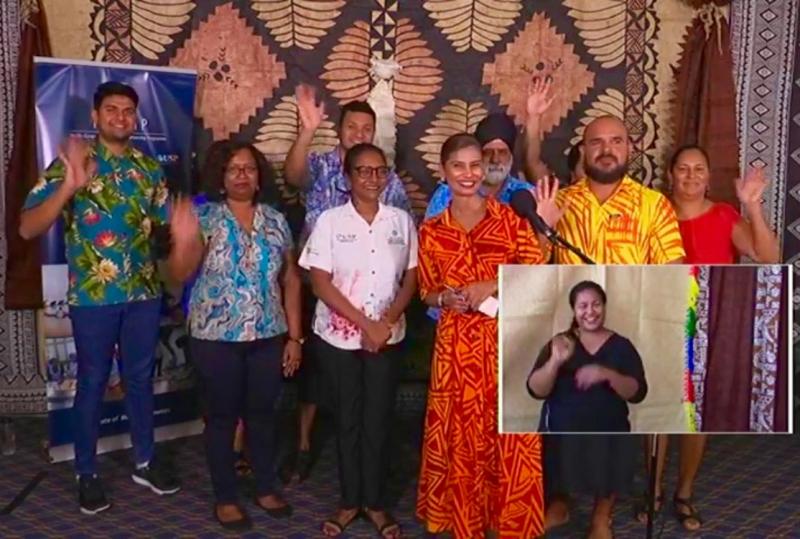
Suva, Fiji. July 2, 2020 – Microplastics (MPs) are prevalent in the waters of Fiji and through seafood consumed, they pose a risk to human health and to Mother Earth, a Pacific-European Union Marine Partnership (PEUMP) Programme funded Master of Science scholarship recipient at the University of the South Pacific, Andrew Paris, has found.
MP’s are tiny pieces of invisible plastic floating in the Pacific Ocean and are less than 5mm in size.
Speaking at USP’s #PEUMP first virtual live event today, as a precursor to the global initiative Plastic Bag Free Day, celebrated worldwide on July 3 annually, with the aim to eliminate the use of single-use plastic bags, Mr Paris said, considering the importance of seafood in the diet of Pacific Islanders, the risk posed is a cause for concern. Apart from being a pervasive threat to the marine environment MPs will impact significantly on the health and vitality of marine resources and marine ecosystem services.
“Globally, the discourse on the prevalence of MPs has shown that areas with higher abundance in water and sediment increased the risk of exposure to marine biota and consequently humans also.”
Mr Paris is among eight students from around the Pacific region awarded scholarships for the USP Master’s Degree Programmes and Doctor of Philosophy for marine related research under the PEUMP Programme.
A recent study by Ferreira et al. (2020) found that a constant source of MPs into the Suva inshore environment was from the Kinoya wastewater treatment plant. The treatment plant outfall is located in Laucala Bay. Findings revealed that the main morphological classification of MP was fibres, followed by fragments and films. It is suggested these microfibers likely originate from washing laundry, which causes its separation.
The scope and potential threats of MP distribution in the marine environment can be better addressed by identifying patterns of distribution, howeverthe origins and pathways that transfer MPs in and around Fiji waters remain unclear.
According to Mr Paris’ preliminary research results, seawater samples from the Kiobo and Makogai islands in the Lomaiviti group to the East of Suva were found to have a low abundance of MPs. In comparison to these sites, there is an elevated prevalence of MPs in Rakiraki and Navakavu coastal waters. These results are in-line with the initial hypothesis that areas with high population densities tend to release more MPs. However, ocean currents and winds can cause the accumulation of MPs in coastal embayments and have also been found to cause MP’s hotspots in certain areas.
Upon completion of his research at the end of 2021, Mr Paris hopes to provide valuable insight into the levels of MPs found in surface waters around Fiji, the distributive processes, patterns and consequently the degree to which the Fiji marine environment is inundated with MPs of foreign origin. The research will aid in establishing baseline data on the levels of MPs in Fiji surface waters which will be key in developing long term monitoring programs to detect environmental changes and evaluating the effectiveness of management actions related to plastic pollution control. Increased focus on MPs will allow for informed decision making at the policy level locally and regionally.
Vice Chancellor, at USP, Professor Pal Ahluwalia said “such research enables marine focused staff, students and programs to substantially contribute to sustainability, health of marine resources and wellbeing of islanders and people across the world.”
The USP is one of four key implementing partners of the overall PEUMP Programme, which is funded by European Union and the Government of Sweden. The EUR 45 million PEUMP Programme promotes sustainable management and sound ocean governance for food security and economic growth, while addressing climate change resilience and conservation of marine biodiversity. It follows a comprehensive approach, integrating issues related to oceanic fisheries, coastal fisheries, community development, marine conservation and capacity building under one single regional action. (ENDS)
You can watch: @uspimr on FACEBOOK
For more information: Josephine Prasad, USP PEUMP Programme, Communications Specialist, +679 9922098, [email protected]